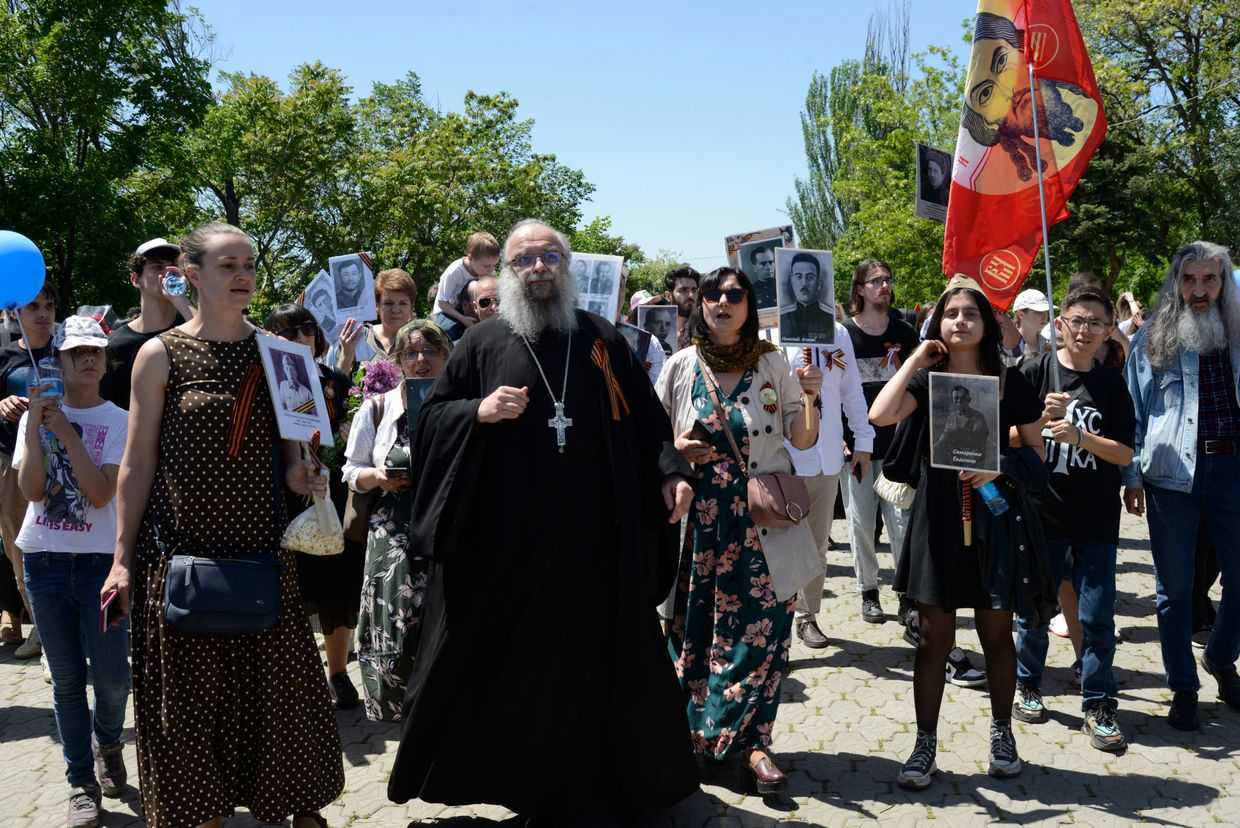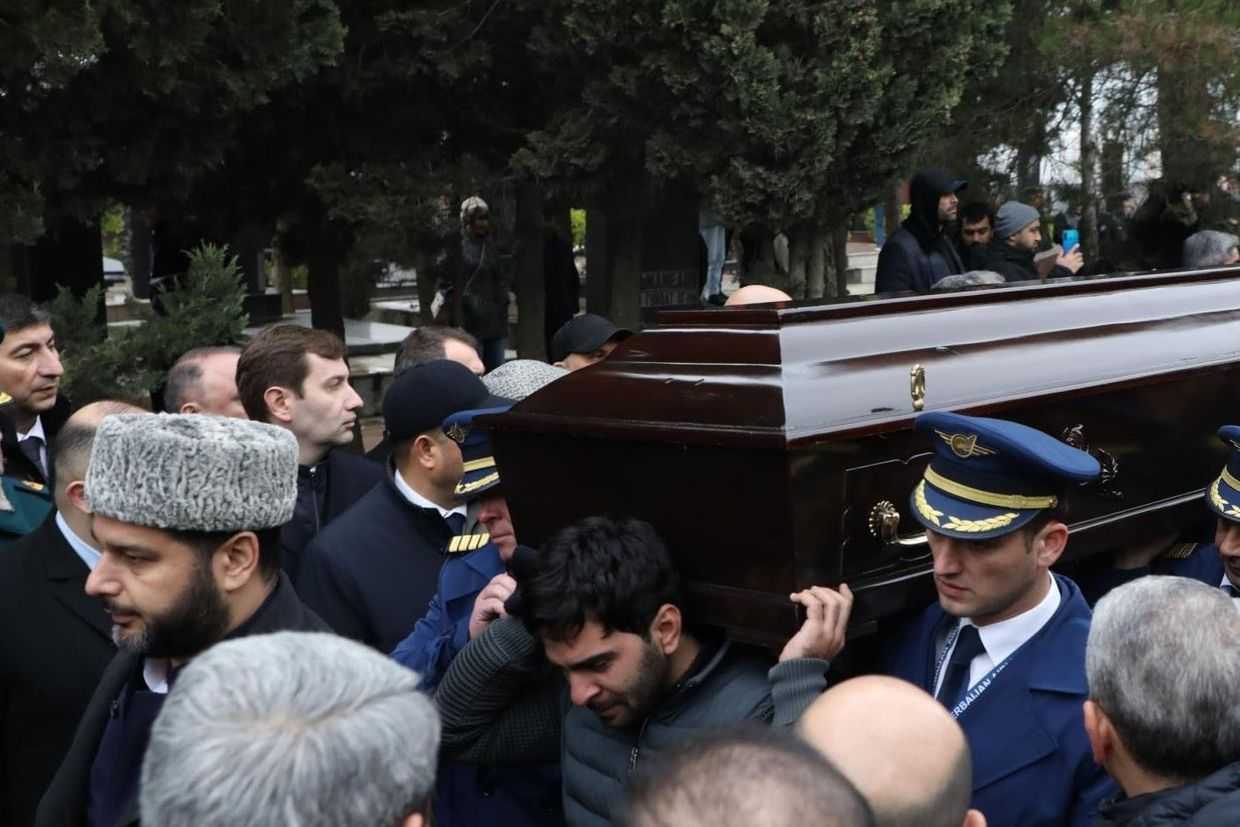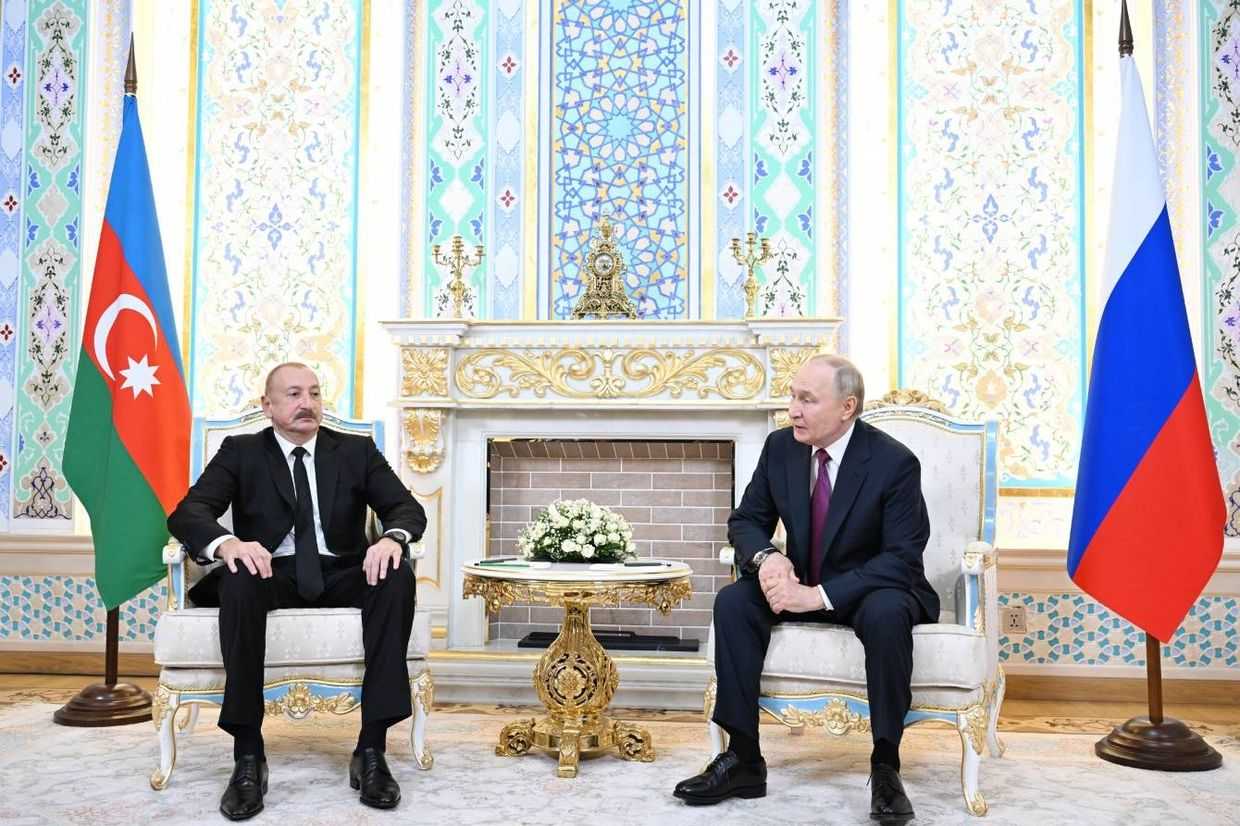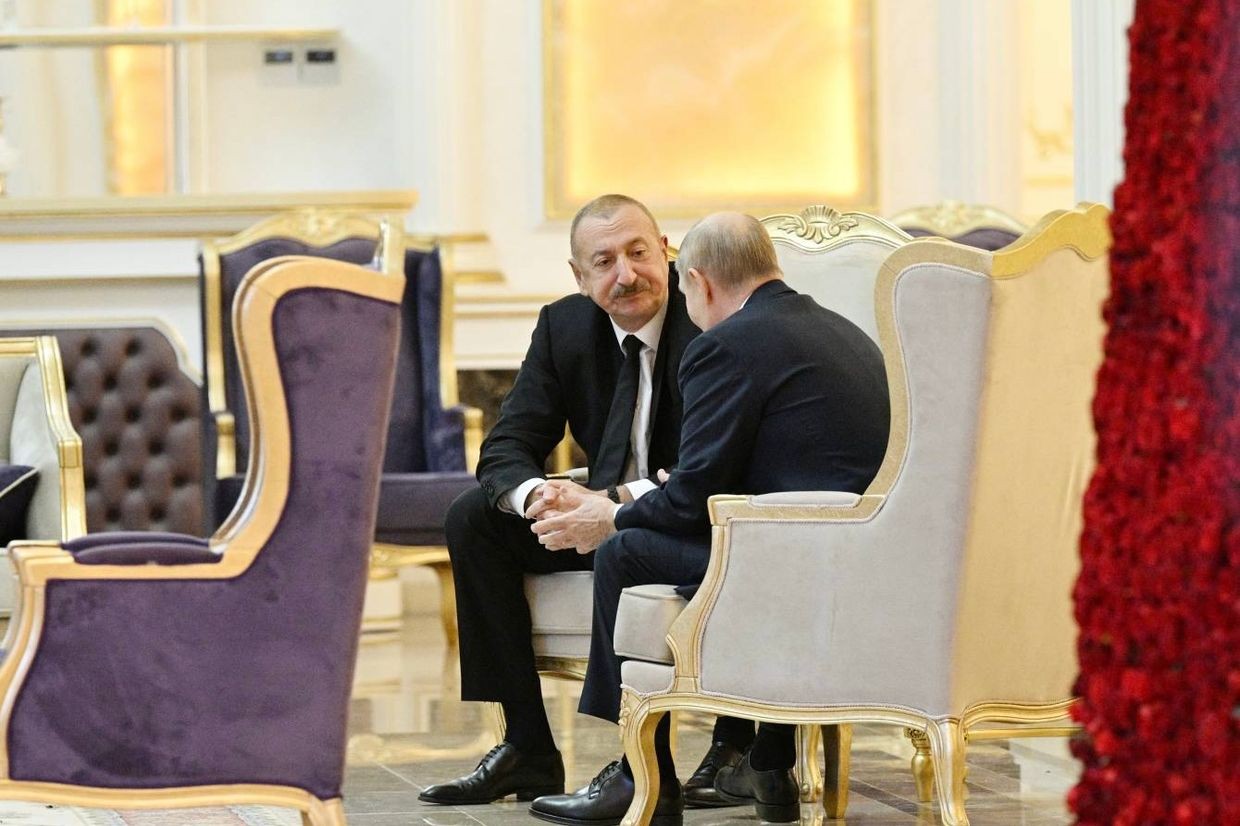
After almost a year of traded barbs, insults, and even threats of military action, the tensions between Azerbaijan and Russia appear to have been put to rest overnight.
On Thursday, Azerbaijani President Ilham Aliyev and Russian President Vladimir Putin held a long-awaited personal meeting in Tajikistan, where Putin finally apologised (mostly) for the deadly Azerbaijan Airlines (AZAL) crash in December 2024 that set off the diplomatic spat.
The televised meeting was awkward, with Aliyev sitting silent and impassive as Putin issued a long-winded, rambling expression of contrition. In turn, Aliyev said he was grateful for the meeting and the information about the crash, but did not directly say he accepted Putin’s apology. The discrepancy between the body language, with Putin hunched over and looking as if he was pleading for forgiveness — compared to Aliyev’s stony silence — did not go unnoticed.
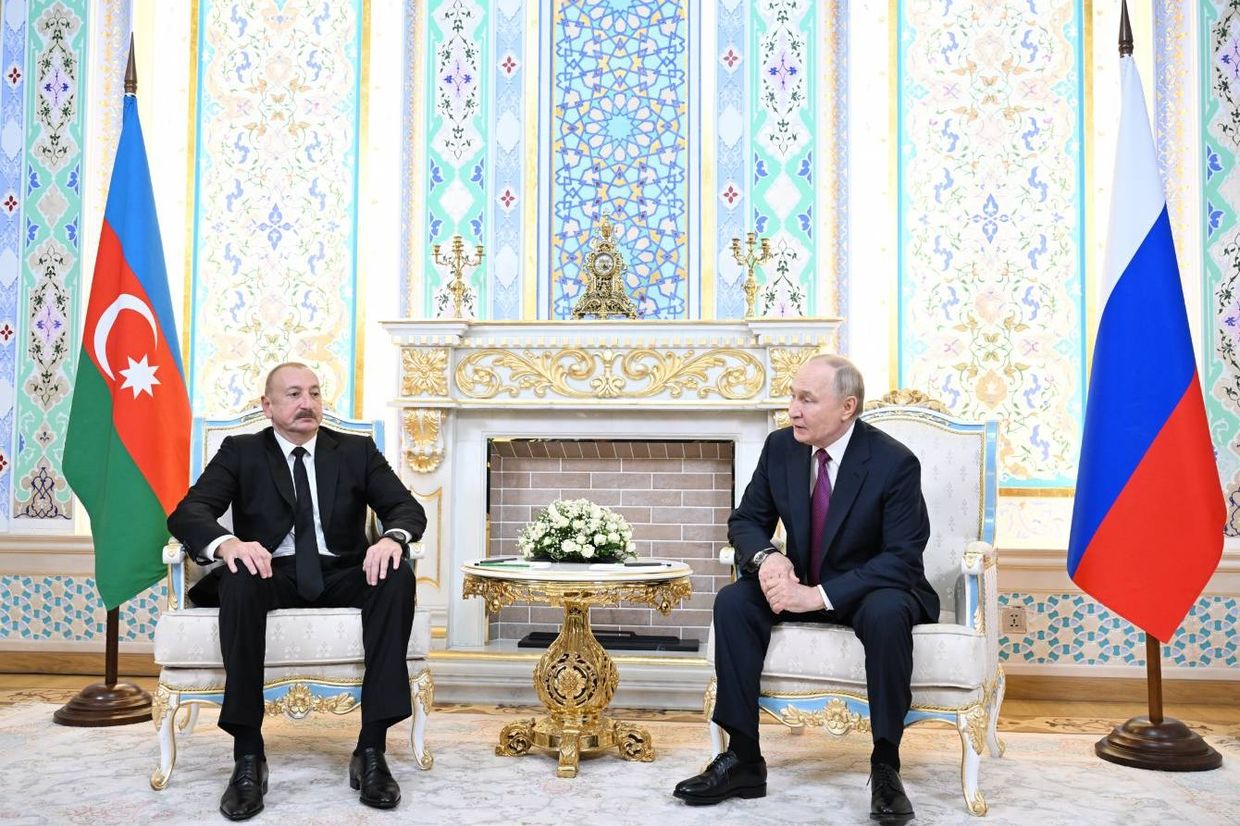
Shortly after, the Azerbaijani and Russian media spheres that have been at each other’s throats in the intervening months abruptly changed their tune and stepped back from the ledge.
Russian media largely focused on Putin’s claims that it was really Ukraine’s fault for the plane crash that killed 38 people, while Azerbaijan’s media apparatus also stuck to a familiar script — that the tension had been stoked by ‘pro-Armenian’ political commentators in Russia.
Azerbaijani–Russian relations at a historic low
The plane crash was the main focus of the talks between Putin and Aliyev on Thursday, an implicit sign that the deadly incident was both the source of the tensions and the main factor that has kept the spat ongoing.
On 25 December 2024, an AZAL jet was flying from Baku to the Chechen capital of Grozny — a route that was scarcely flown before Azerbaijan closed its land borders due to the COVID-19 pandemic, a closure that still remains in place five years later.
After experiencing difficulties with radar, and being denied permission to land in Grozny, the plane searched for alternate nearby airports before ultimately crash-landing across the Caspian Sea in Kazakhstan, killing 38 of the 67 people on board.

Just days later, Azerbaijan said that Russia was to blame for the incident, alleging that air-defence missiles had struck the plane and caused it to crash. On 28 December, Putin apologised for the ‘tragic incident’ but refused to take responsibility or acknowledge that Russian missiles had struck the plane.
In the interim, a number of theories were spread, namely that Russian air traffic had ordered the plane to go to Kazakhstan in hopes that it would crash in the Caspian Sea, thereby destroying the evidence of wrongdoing.
Aliyev and other Azerbaijani officials echoed the theories, accusing Russia of trying to cover up the incident, and demanded an official apology, as well as for Russia to pay compensation to the victims and bring those responsible to justice.
The tension simmering below the surface exploded in June 2025 after two Azerbaijani brothers died in police custody in the Russian city of Yekaterinburg. Baku said the two were tortured to death and launched a criminal investigation into the matter.
Shortly afterwards, Azerbaijan struck back, raiding the Baku offices of the Russian state-run media outlet Sputnik Azerbaijan and arresting a group of Russian nationals in Azerbaijan — most of whom were reportedly IT workers — who were paraded on TV, beaten and bloodied.
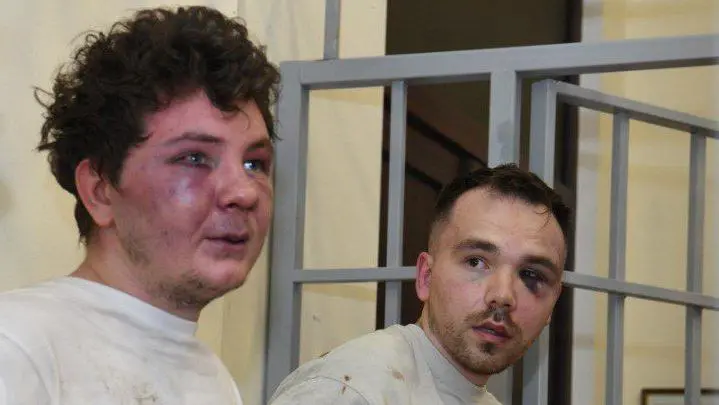
Tit-for-tat arrests and other measures continued on both sides, as respective media levied increasingly harsh attacks.
Azerbaijani media labelled Russia an imperialist power, even comparing it to Nazi Germany, and spoke favourably about Ukraine, as well as suggesting that Baku might begin to send weapons to Kyiv.
In turn, Russian media denigrated the Azerbaijani diaspora in Russia, referring to them as bandits and criminals, while leading propagandists suggested that Baku was actually a Russian city. Others warned that Azerbaijan could be the next target of Russia’s ‘special military operation’, the Kremlin’s official name for its full-scale war in Ukraine.
As recently as the beginning of September, the conflict between Russia and Azerbaijan continued to play out in public, replete with vicious, racially-tinged attacks in Russian media, and Azerbaijani media claiming that ‘in today’s Russia, Azerbaijanis could face the same kind of treatment that Jews endured in Nazi Germany’.
It’s hard to overstate the rhetorical whiplash one can view on full display on 10 October, just a day after the Putin-Aliyev meeting.
Azerbaijan blames ‘pro-Armenian’ figures, Russia blames Ukraine
In what can only be described as a choreographed move, the media apparatuses of both Russia and Azerbaijan abruptly changed overnight, with remarkable uniformity.
Azerbaijani media quickly deemed the meeting an unqualified success for Aliyev.
In an article in Caliber entitled ‘We did it — Azerbaijan’s triple triumph’, analyst Emin Galadi said, ‘I won’t shout “we’ve won,” though the temptation is strong’.
Galadi then went on to argue that ‘Moscow ultimately made a sober and realistic assessment of the situation’ despite the efforts of ‘certain politicians’ who ‘tried to fuel anti-Azerbaijani sentiment’.
From blaming Russia, if not Putin outright, Azerbaijani media, en masse, laid the blame on three Russian figures — pundits Vladimir Solovyov and Margarita Simonyan and MP Konstantin Zatulin — who were described as being ‘pro-Armenian’.
In addition to Caliber, the same three names appeared in articles by APA, Trend, Azernews, Aze.media, and Baku.ws, among others.
While Simonyan is an ethnic Armenian herself, she is an outspoken critic of Prime Minister Nikol Pashinyan’s government and has been banned from entering Armenia, as has Zatulin. Solovyov has also repeatedly insulted Pashinyan and his government, prompting official complaints from Yerevan.
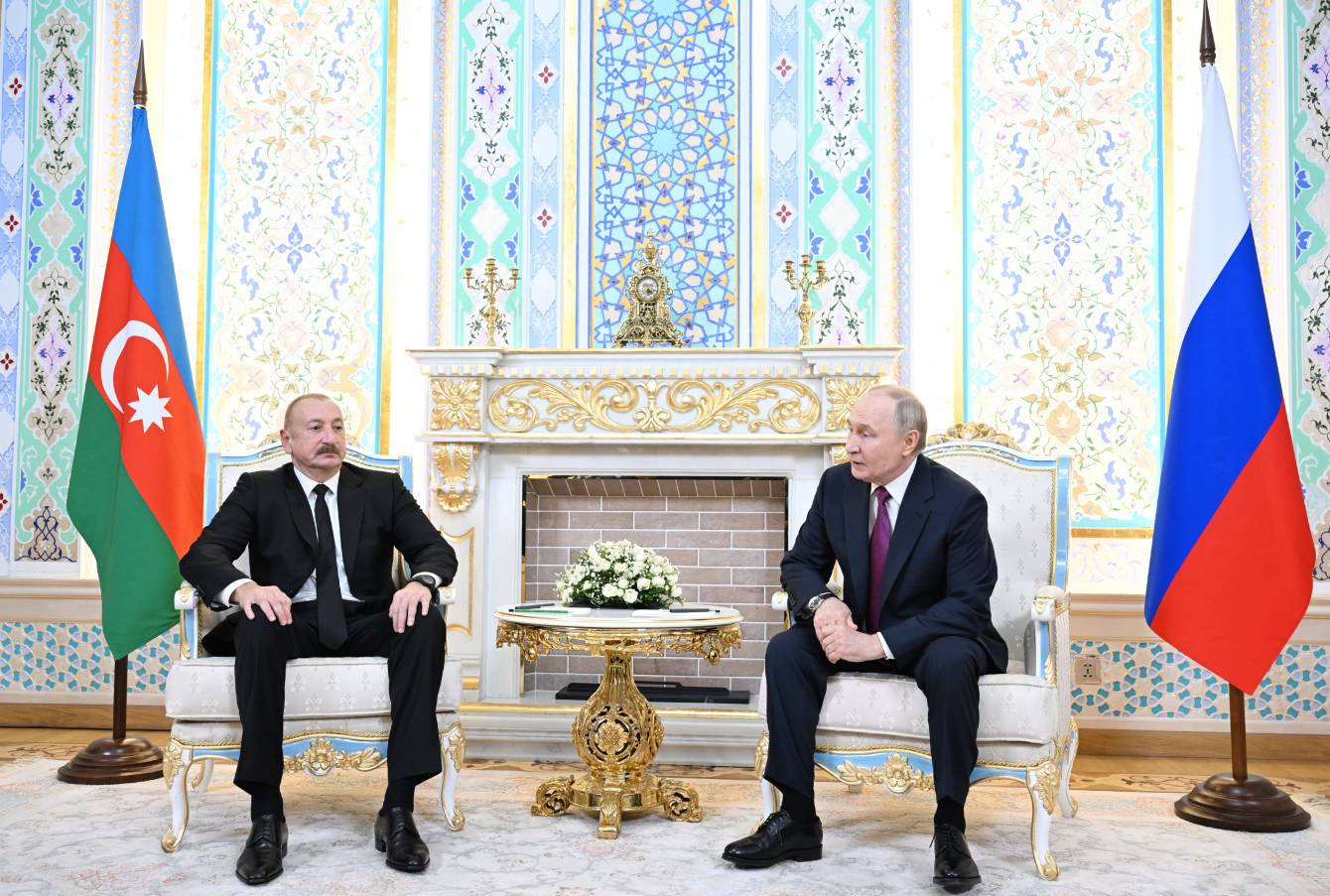
‘This is what pro-government media has always done in Azerbaijan’, independent Azerbaijani analyst Cavid Ağa told OC Media.
‘They are specifically ordered by the Presidential Administration on what to write’.
‘They always blame some dark forces who put enmity between countries. [The] “good tsar, bad boyars” narrative isn’t only about Putin and Aliyev, but even other state leaders’, he added.
Outside events lend evidence to the notion that the rapprochement was pre-planned.
On Friday, Igor Kartavikh, one of the Sputnik Azerbaijan journalists arrested back in June, was released from jail and put into house arrest. Russian presidential aide Yury Ushakov said the decision had been made before the Putin-Aliyev meeting.
In turn, similar to Azerbaijan, Russia found an old enemy to shift the blame to — Ukraine. Coverage of the meeting and Putin’s apology in Russian state-run media outlets centred on claims that the presence of Ukrainian drones in the sky at the time was the real cause of the AZAL plane crash, with the ‘human error’ of the Russian personnel operating the air-defence missiles coming only in second place.
Some analysts who had harshly criticised Azerbaijan before also referenced Ukraine in their comments on the meeting.
Popular pro-Kremlin war blogger Yury Podolyaka, who said in August that a war between Russia and Azerbaijan was ‘likely’, wrote on Friday that the ‘heartfelt meeting’ meant most of the issues between the two countries ‘have been resolved’.
At the same time, Podolyaka said that ‘the problems of Azerbaijani business in Ukraine (and in the supply of energy resources to Ukraine) played a significant role in this’.
Others declined to offer an opinion at all.
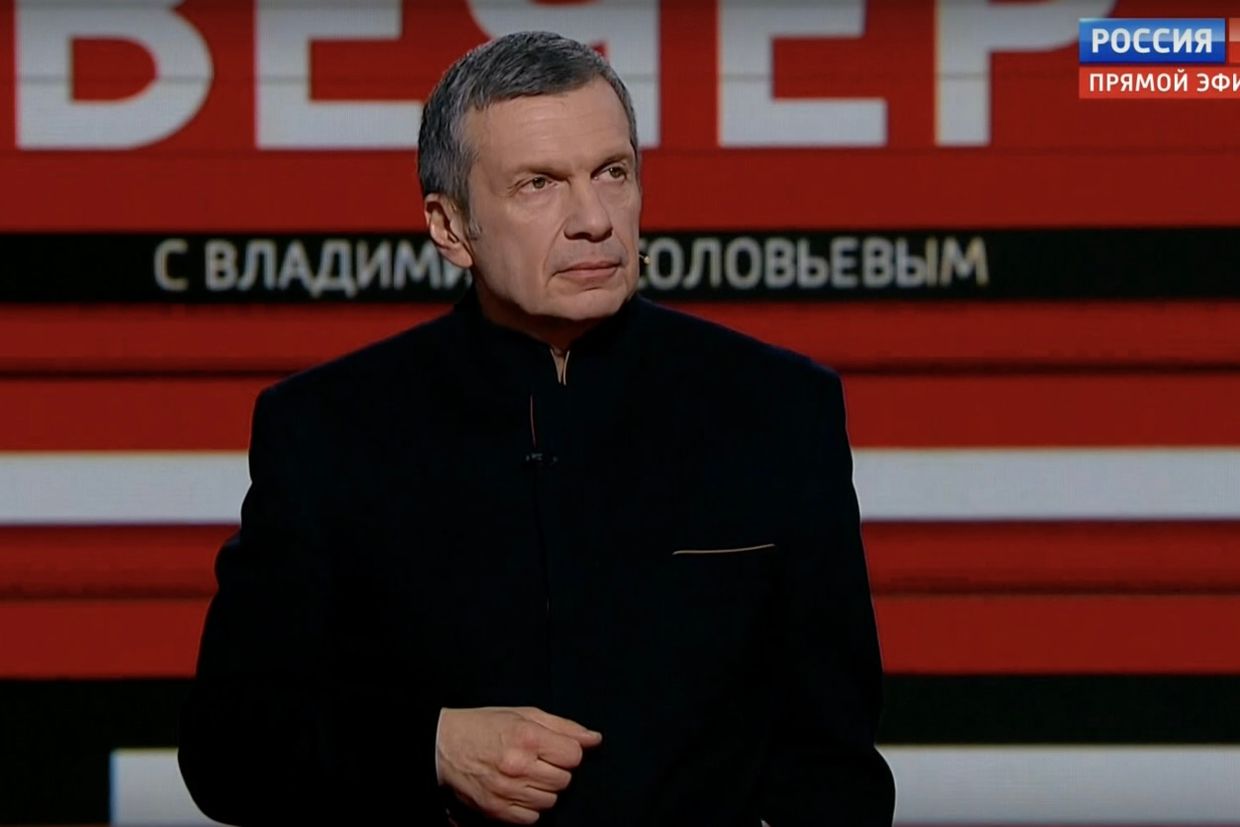
Solovyov, who had issued a vague threat that Russia could carry out a ‘special military operation’ against Azerbaijan back in August, only shared positive information about the meeting in his coverage on Telegram.
Zatulin, the Russian MP who has repeatedly criticised Azerbaijan, said on Friday that he wants relations with Azerbaijan to be good. He further claimed that Aliyev only distanced himself from Russia to gain leverage ahead of the Washington meetings with Pashinyan and US President Donald Trump.
Nonetheless, although all sides appeared to mostly agree that the crisis has more or less ended, there are clear indications that Russia won’t soon forget Azerbaijan’s brazen show of defiance.
In one telling example, the staunchly Russian nationalist media outlet Tsargard criticised Baku’s ‘triumphant’ attitude on Friday and instead claimed Russia had ‘achieved its most important goal’, the resolution of the crisis.
Tsargrad went to bash individual articles by Caliber and other Azerbaijani media outlets, complaining that instead of being ‘conciliatory’, Baku had opted to say it was ‘victorious’.
The ‘crisis has been resolved’, but the ‘aftertaste remains’, Tsargrad wrote.
Podolyaka made a similar point, saying ‘I think time will tell what really happened and who “won” ’.
‘As American gangster Al Capone said almost 100 years ago: “You can get further with a kind word and a gun than with just a kind word”. And this is exactly the case’, Podolyaka concluded.
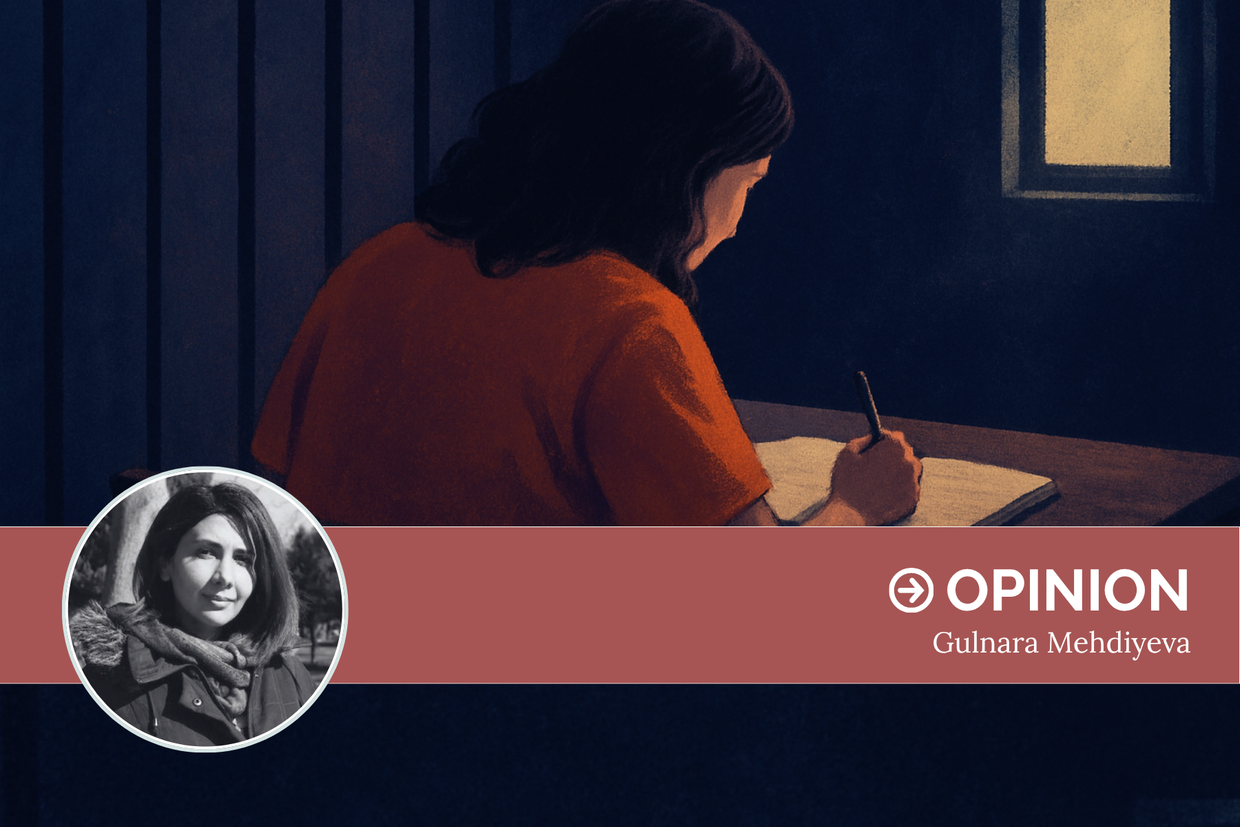
This article was translated into Russian and republished by our partner Jnews.




